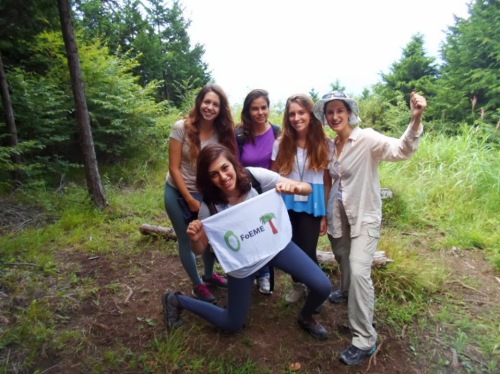
Kneeling on the Tatami in the community center of the village of Kosuge, situated in the mountains about 2 hours from Tokyo, Japan, we carefully watched how our hostess prepared Green Tea and taught us the ritual of the traditional tea ceremony. Dressed in a pretty Yukata (summer cotton Kimono) she explained to us the term “Ichi-go, Ichi –e“, a once in a lifetime experience, a moment that will not return.
Indeed, the last two weeks of August were an amazing opportunity for eight female youth water trustees from FoEME communities in Israel and Palestine to meet Japanese youth at an environmental peacebuilding summer camp, meticulously organized and funded by Peace Field Japan (PFJ). The name of the camp is Kizuna, meaning ‘Bond’. We were soon to explore for ourselves the many different meaning of bonds.
Staying in the ‘Satoyama’, the Mountain Village, we learned about the connection between humans and nature. The term ‘Satoyama’ reflects the cycle of give and take between rural society and nature, from the field to the plate: traditional, organic farming of locally suited crops, such as Wasabi, Makomodake, and delicious sweet Pumpkins (which are deliberately covered with weeds so the monkeys won’t find them!). Since it is a mountainous, forested area, there isn’t enough open space to grow rice, so the area’s specialty is growing Soba, a type of wheat. Under the guidance of the village farmers, we sowed the Soba, learning how to gently cover the seeds, putting love into what will appear on our plates later on. Using the Soba flour, we learned to make cookies and noodles – delicious! The villagers sell their local products to tourists, branding the area with its organic food.
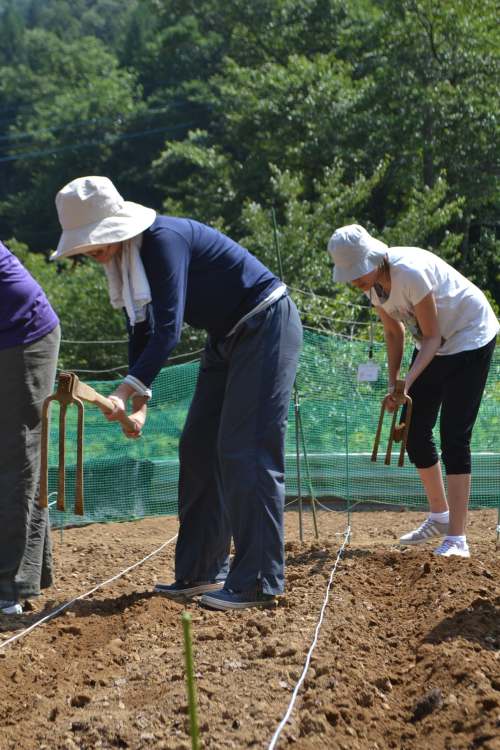
In the Satoyama, nothing goes to waste. The word ‘Mottanai‘ is frequently used to express valuable, useful and precious things such as food, time and friendship. We experienced ‘Mottanai’ at meals, not leaving even a grain of rice on our plates. Visiting the local compost factory, we learned that the villagers separate their organic waste and it is later collected and processed into rich compost for gardening and farming. The elderly villagers also taught us to make good use of old T-Shirts by weaving them into colorful sandals to use indoors.
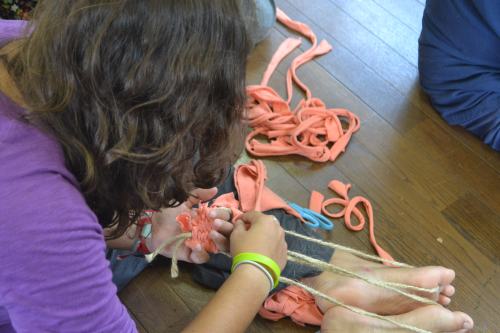
Another important aspect of the bond between humans and nature in this area is the maintenance of the dense forest. Thinning the forest is an important traditional occupation, not only for getting trees for building and fire, but even more for preventing landslides and protecting water quality. If the forest is too dense, sunlight won’t penetrate, the trees won’t be strong and the roots won’t hold the soil on the steep slopes. The heavy rain can sweep away the soil and endanger the village. Moreover, the soil filters the raindrops that slowly seep down towards the river, flowing through the big water basin and eventually reaching the taps of millions in Tokyo.
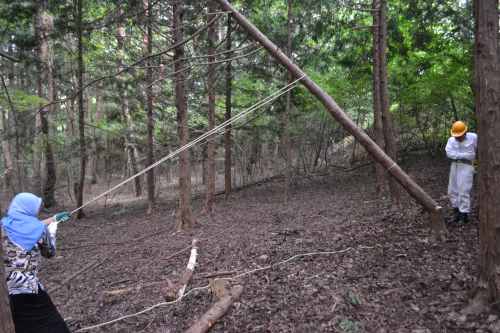
The ‘Kizuna’ we found with nature was reflected in the bonds being created between the participants, with the camp staff and the villagers. During the two weeks, we acted along 3 principles that were set as the ‘camp code’: Love, Respect and Compassion. We opened our hearts and connected to the local children, the families who hosted us generously, getting attached and crying when we had to leave. The participants shared one big room and lived together for the two weeks, finding out many things in common, laughing, dancing, but also dealing with cultural differences in mentality, behavior, perceptions, food and overcoming the tensions.
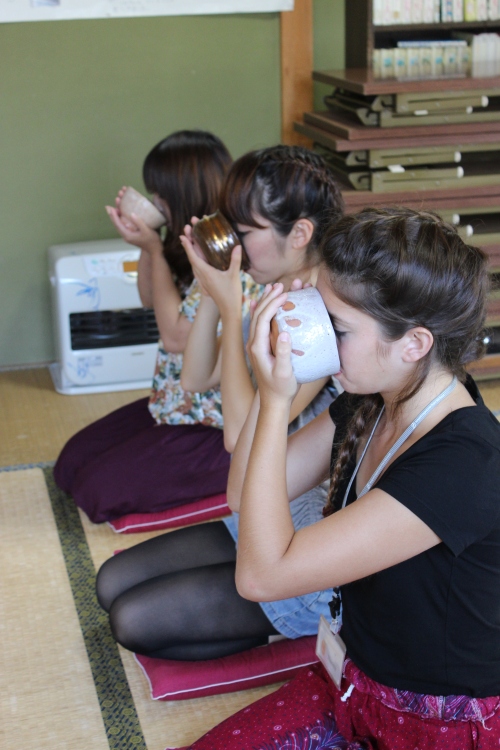
Experiencing the life in the Satoyama and learning about the deep commitment to maintain the culture and traditions, took me to the cultural landscapes and local knowledge in the FoEME communities back home. The effort to create environmental bonds between Palestinian, Israeli and Jordanian youth through campaigns for protecting the ancient terraces in Batir and Wadi Fuqin, training farmers on how to use purified waste water, and many more examples, are all part of connecting together in the natural cycle of life.
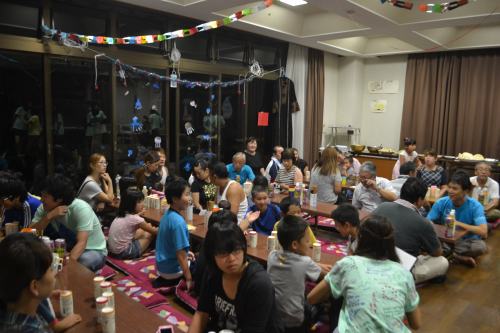
Contributed by Amy Lipman Avizohar, Israeli Education Coordinator, Friends of the Earth Middle East.
photographer: Ela Davidovitch
Revised and edited by FoEME’s Media Officer & Project Coordinator Samar M. Salma at the Amman Office.